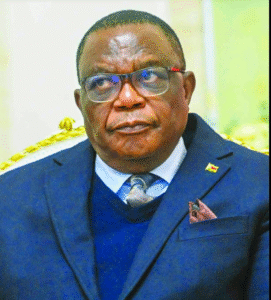CCC STORMS RURAL STRONGHOLDS, SHATTERING ZANU PF’S IRON GRIP ON THE COUNTRYSIDE
In a stunning political shift, the Citizens for Change Coalition (CCC) has launched an aggressive and unexpectedly successful campaign across Zimbabwe’s rural constituencies—historically the bedrock of ZANU PF dominance. What was once considered sacred ground for the ruling party is now a battleground, as the opposition’s message of reform and renewal takes root where ZANU PF never expected to be challenged.
For decades, rural Zimbabwe stood firmly behind ZANU PF, largely due to the party’s deep association with the liberation struggle and its extensive rural patronage networks. Former President Robert Mugabe and his successors painted themselves as defenders of land, heritage, and rural livelihoods. Through land redistribution programs and targeted messaging, the ruling party secured near-guaranteed electoral support from these areas.
But that loyalty is cracking.
In recent months, the CCC has managed to penetrate these traditional ZANU PF fortresses, bringing with it a promise of change, transparency, and economic revival. The party’s inclusive messaging and targeted grassroots organizing have begun resonating with rural citizens who, for years, have borne the brunt of Zimbabwe’s economic decline. Poor infrastructure, lack of clean water, failing schools, and the general collapse of service delivery have left many disillusioned. This growing frustration is now translating into political appetite for alternatives.
The shift has caught ZANU PF completely off guard.
Desperate to reassert control, the ruling party has intensified its campaign activity in the rural districts—often resorting to heavy-handed tactics. In multiple areas, CCC rallies have been violently dispersed by police using tear gas and brute force. Rather than calming the storm, these actions have only poured fuel on the fire. The opposition has seized on the repression, framing it as proof that ZANU PF fears free expression and is running out of political solutions.
CCC leader Nelson Chamisa and his team have used the crackdown to rally greater support, painting themselves as the defenders of democracy and people’s rights. “We will not be intimidated by tear gas or batons,” Chamisa declared at a recent gathering. “The voice of the people cannot be silenced by fear.”
Adding to ZANU PF’s woes is the shifting loyalty of the youth. Once a dependable demographic for the ruling party, many young people—facing massive unemployment, rising drug abuse, and a lack of opportunities—are turning to CCC with growing enthusiasm. In places where ZANU PF once needed only to show up to win, they now find themselves on the defensive.
Observers note that the political balance in Zimbabwe is experiencing a seismic recalibration. The CCC’s breakthrough into rural spaces has added a new level of competitiveness to the political scene, dismantling the decades-old narrative that ZANU PF is unshakable outside urban centres.
However, this new reality also carries risk. With the stakes higher than ever, the ruling party may become more aggressive, increasing state-led repression in a bid to crush the CCC’s momentum. Already, human rights watchdogs and regional observers are warning that the use of force against opposition gatherings signals a troubling pattern ahead of the next elections.
Yet despite the hostility, the momentum behind CCC continues to grow. Their message is clear, their presence is being felt, and their support base is widening. The rural voter, long considered passive and loyal, is now emerging as a key force in the battle for Zimbabwe’s democratic future.
As the nation inches closer to another pivotal election, Zimbabwe stands at a crossroads. Will the ruling party adapt, reform, and engage with citizens’ concerns—or will it clamp down harder in a last-ditch effort to hold power? The answer may well determine whether Zimbabwe takes a step towards genuine democratic renewal or plunges further into repression.
One thing is certain: the political ground has shifted, and for the first time in decades, the countryside is no longer ZANU PF’s safe haven. The people are speaking—and this time, they’re not just whispering in the shadows.



